Time and scientific daily eating menu help the body stay healthy
Eating scientifically is not only about choosing healthy foods, but also about how you arrange your eating time to optimize your health.
- Why is meal timing important?
- Benefits of eating on time
- Ideal scientific eating time during the day
- What time should I have dinner before?
- Suggested daily scientific diet menu
- Breakfast (6:30 - 8:00 am)
- Breakfast (9:30 - 10:30 am)
- Lunch (12:00 - 13:30)
- Afternoon snack (15:30 - 16:30)
- Dinner (18:00 - 19:30)
- Compare scientific and unscientific menus
- Specific actions to apply a scientific diet
- Scientific eating tips for busy people
- Frequently asked questions about scientific eating
- 1. Should I skip meals to lose weight?
- 2. Do I need to take supplements?
- 3. How to maintain healthy eating habits?
Why is meal timing important?

The timing of your meals directly affects your body's circadian rhythm. The circadian rhythm regulates metabolism, digestion, and even mood. Eating at regular times helps your body absorb nutrients better, maintain stable blood sugar levels, and reduce the risk of diseases such as obesity, type 2 diabetes, or digestive disorders.
For example, if you eat breakfast late or skip breakfast, your body may fall into a state of low energy, leading to overeating in the evening. On the contrary, a scientific eating schedule will help you balance your energy throughout the day.
Benefits of eating on time
- Improve digestion:Eating on time helps the digestive system work smoothly, reducing the risk of bloating and indigestion.
- Energy Boost:Provides stable energy, avoiding mid-day fatigue.
- Weight control:Proper meal times help control hunger and reduce unhealthy snacking.
- Improve cardiovascular health:Eating on time helps regulate cholesterol and blood pressure.
Ideal scientific eating time during the day
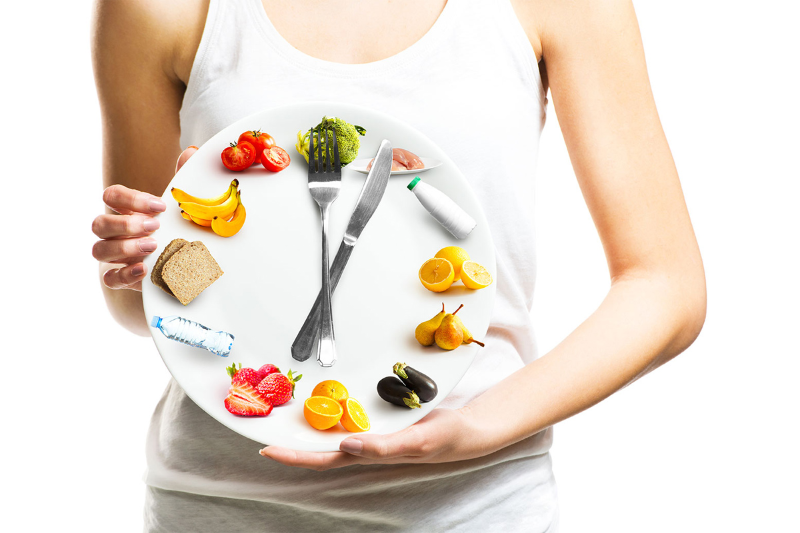
Based on research from nutritionists, the ideal meal times should follow the body's circadian rhythm. Here is a sample schedule for a day:
| Meal | Time | Purpose |
|---|---|---|
| Breakfast | 6:30 - 8:00 AM | Start your metabolism, energize your day. |
| Breakfast | 9:30 - 10:30 AM | Maintain energy, avoid hunger before lunch. |
| Lunch | 12:00 - 13:30 | Provides nutrition for afternoon activities. |
| Afternoon snack | 15:30 - 16:30 | Prevent hunger, maintain concentration. |
| Dinner | 18:00 - 19:30 | Support body recovery, avoid eating too late causing indigestion. |
What time should I have dinner before?
Many people wonder whether they should eat dinner late or not. According to experts, dinner should be finished before 8:00 PM to give the body time to digest before going to bed. Eating dinner too late (after 9:00 PM) can put pressure on the stomach, affect sleep and increase the risk of fat accumulation.
Suggested daily scientific diet menu
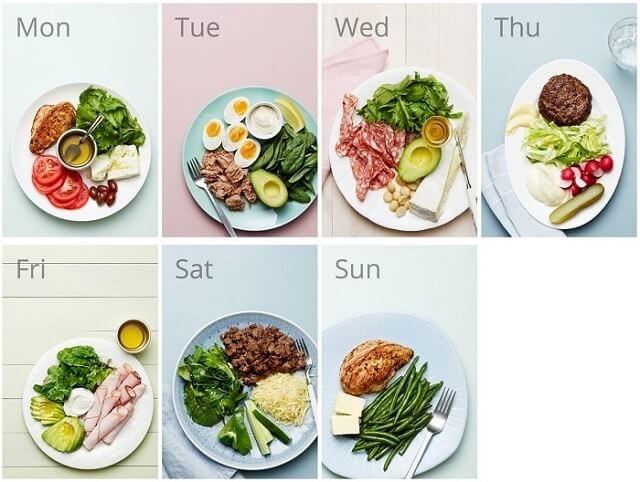
To build a scientific menu, you need to ensure a balance between the groups of substances: carbohydrates, proteins, healthy fats, vitamins and minerals. Below is a sample menu for a day, suitable for adults with energy needs of about 1800-2000 kcal.
Breakfast (6:30 - 8:00 am)
Breakfast is the most important meal of the day, providing energy to start the day. The ideal menu should include complex carbohydrates, protein, and fiber.
- Main course:Whole wheat bread with fried egg and lettuce and tomato.
- Drinks:Unsweetened milk or unsweetened green tea.
- Dessert:An apple or half an avocado.
Breakfast (9:30 - 10:30 am)
Snacks help maintain energy and avoid feeling hungry before lunch.
- Option 1:A handful of almonds (15-20g) and a box of unsweetened yogurt.
- Option 2:A banana and a glass of carrot juice.
Lunch (12:00 - 13:30)
Lunch should be nutritious to sustain energy for the afternoon. Prioritize foods rich in protein and fiber.
- Main course:Brown rice, pan-fried chicken breast, boiled vegetables (broccoli, carrots).
- Side dishes:Vegetable soup with shrimp.
- Drinks:Water or unsweetened fruit juice.
Afternoon snack (15:30 - 16:30)
Afternoon snacks help you control hunger and avoid overeating at dinner.
- Option 1:A slice of whole wheat bread spread with peanut butter.
- Option 2:An orange and some walnuts.
Dinner (18:00 - 19:30)
Dinner should be light and easy to digest so as not to put pressure on the stomach.
- Main course:Pan-fried salmon, boiled sweet potatoes, olive oil salad.
- Side dishes:Pumpkin soup.
- Drinks:Chamomile tea or water.
Compare scientific and unscientific menus
To better understand the importance of a scientific menu, see the comparison table below:
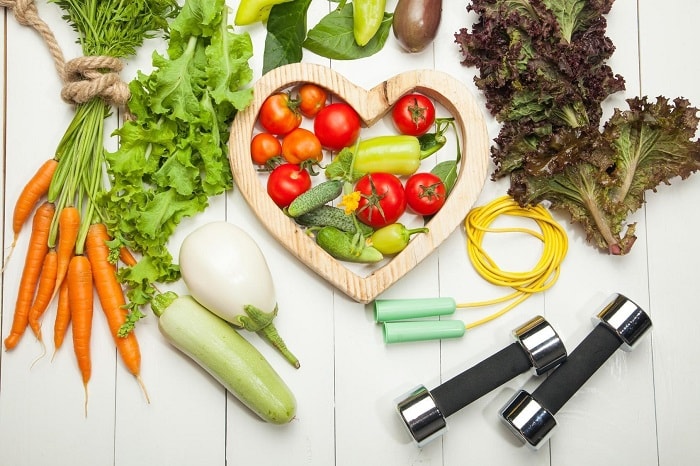
| Criteria | Scientific menu | Unscientific menu |
|---|---|---|
| Meal time | Fixed, punctual (6:30-19:30) | No fixed schedule, late meal (after 9:00 pm) |
| Nutritional composition | Balance starch, protein, fat, vitamins | Low in fiber, high in sugar, bad fats |
| Health effects | Increase energy, improve digestion | Causes fatigue, weight gain, indigestion |
| Food examples | Brown rice, salmon, boiled vegetables | Instant noodles, fried foods, soft drinks |
Specific actions to apply a scientific diet
To get started, you don't need to change your entire routine at once. Here are some specific steps to follow to adopt a healthy diet:
- Meal planning:Prepare a menu for the whole week, prioritizing fresh ingredients and minimal processing.
- Smart shopping:Choose nutrient-dense foods like vegetables, fruits, whole grains, and lean proteins.
- Set an alarm for meals:Set reminders on your phone to eat on time, especially breakfast and dinner.
- Limit fast food:Replace fast food with homemade dishes like salad, brown rice, or vegetable soup.
- Track progress:Record how your body feels after each meal to adjust your menu accordingly.
Scientific eating tips for busy people
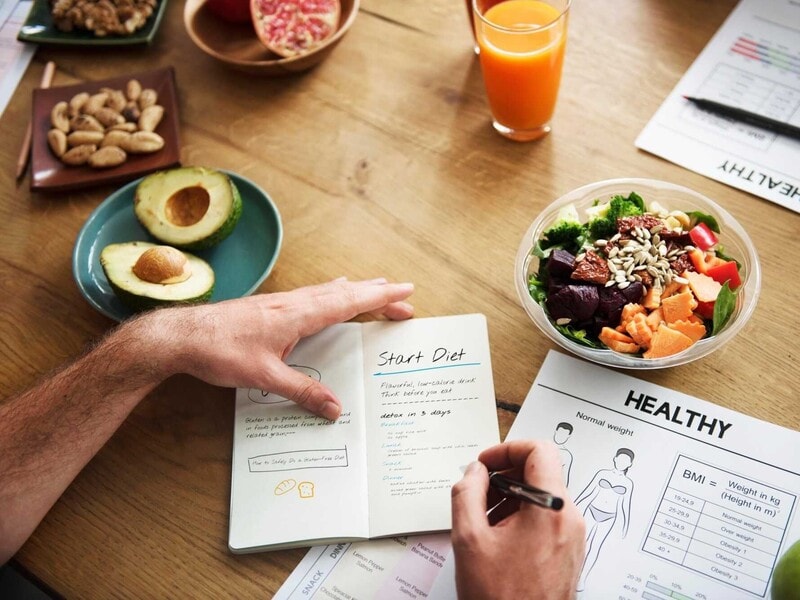
If you are a businessman or office worker with a tight schedule, try these tips:
- Meal prep ahead: Spend the weekend cooking and portioning out meals for the week.
- Use a lunch box: Bring your own homemade lunch to control food quality.
- Choose a convenient snack: Nuts, fruit, or yogurt are quick, portable options.
Frequently asked questions about scientific eating
1. Should I skip meals to lose weight?
Don't skip meals, especially breakfast. Skipping meals can slow your metabolism, make you feel excessively hungry, and lead to overeating at later meals. Instead, reduce your portion sizes and choose foods that are low in calories but high in nutrients.
2. Do I need to take supplements?
If your diet is balanced, you do not need supplements. However, in case of deficiencies (such as vitamin D, omega-3), consult your doctor before use.
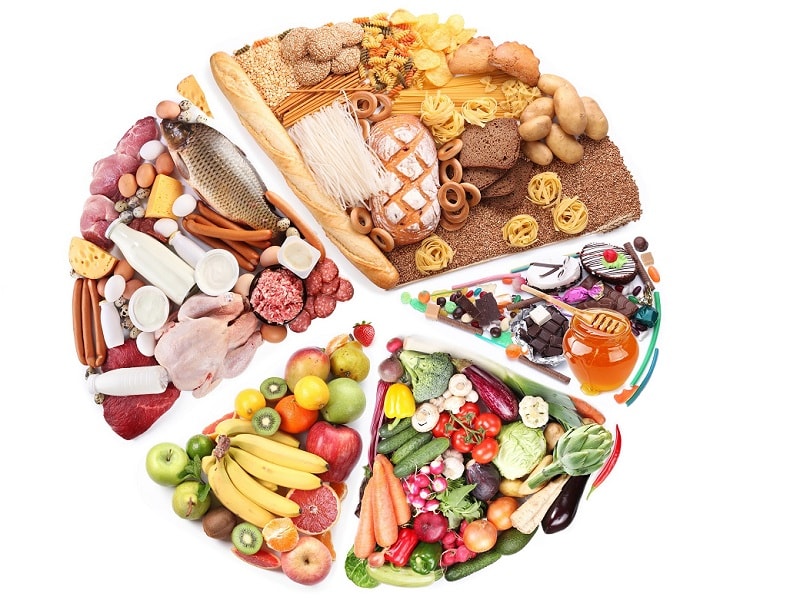
3. How to maintain healthy eating habits?
Start with small changes, like replacing soda with water or adding more vegetables to your meals. Make it a habit by repeating it for 21 days, and find a partner to do it with.
Eating well is not just about what you eat, but also when you eat. A sensible eating schedule, combined with a balanced menu, will help you improve your health, increase your energy, and live a more positive life. Start today with small steps like meal planning, choosing healthy foods, and eating on time. Your health is worth the investment!
